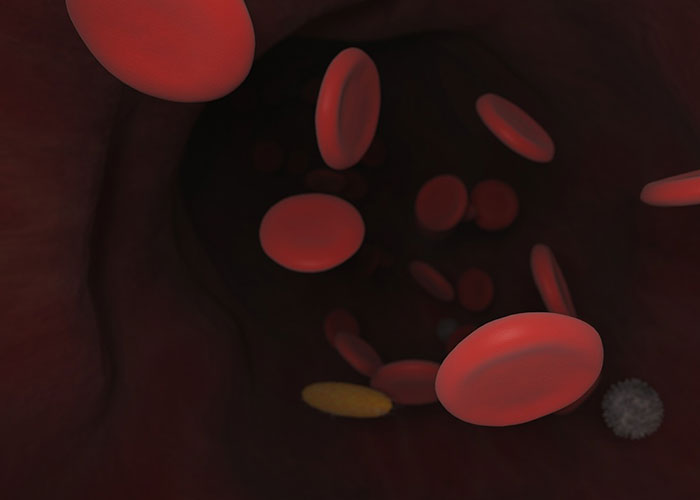
Multiple myeloma refers to a type of cancer that forms in your plasma, which is a type of white blood cell that makes antibodies to help fight infections. These cancerous cells grow out of control in your bone marrow and produce dysfunctional proteins that your body can’t use, harming your immune system and doing damage to your kidneys.
Eligible veterans diagnosed with multiple myeloma should be aware that the condition is linked to exposure to toxic exposure from volatile organic compounds (VOCs) that were found at U.S. Marine Corp Base Camp Lejeune in North Carolina. This condition—and several more—are considered presumptive conditions if you were exposed to any such chemicals in those circumstances. This means VA makes it easier for you to apply for and receive disability benefits if you can tie your active diagnosis for Non-Hodgkin lymphoma to your service record.
Background on Camp Lejeune Toxic Exposure
Service members, plus any of their family members, who were stationed at Camp Lejeune for a certain period of time between the mid-1950s to the mid-1980s may have been exposed to several dangerous toxins in the local drinking supply. Such toxins include trichloroethylene (TCE), perchloroethylene (PCE), benzene, and vinyl chloride, which were either improperly stored or disposed of on or nearby the base.
Veterans who have been diagnosed with multiple myeloma and were on active duty for a period of no fewer than 30 days at Camp Lejeune between August 1, 1953 and December 31, 1987 may be eligible for additional healthcare benefits and compensation from VA. VA has also established a list of presumptive conditions so that veterans with certain diagnoses do not need to provide a medical nexus linking an active diagnosis to their service record. Some healthcare benefits also extend to affected family members of service members.
For more information on presumptive conditions related to toxic exposure at Camp Lejeune, you can read the following blogs:
- TCE exposure benefits
- Immune Disorders
- Leukemia
- Aplastic anemia
- Bladder cancer
- Kidney Cancer
- Multiple Myeloma
- Non-Hodgkin Lymphoma
- Parkinson’s disease
- Myelodysplastic syndrome (MDS)
- All types of respiratory cancer
Multiple Myeloma Symptoms, Risk Factors, and Treatment
Symptoms of multiple myeloma can vary, and they may to be present at all early in the disease. Common symptoms include:
- Bone pain, particularly in the spine or chest
- Nausea
- Constipation
- Loss of appetite
- Mental fogginess and confusion
- Fatigue
- Frequent infections
- Unexplained weight loss
- Leg weakness or numbness
- Excessive thirst
Risk factors for multiple myeloma include increased age, with most cases affecting people in their mid-60s, being male, being of the Black race, having a family history of multiple myeloma, and having a history of monoclonal gammopathy of undetermined significance (MGUS).
Treatment for multiple myeloma may not be necessary at first, and your doctors may choose to monitor the condition instead. If symptoms are present and treatment is needed, methods may vary. Common treatments include targeted therapy, immunotherapy, chemotherapy, corticosteroids, bone marrow transplant, and radiation therapy.
VA Disability Ratings for Multiple Myeloma
Multiple myeloma does not have its own diagnostic code in VA’s Schedule of Rating Disabilities. Instead, it is given an analogous rating based on its similarities to either leukemia or lymphoma, which can be found in 38 CFR § 4.117, Schedule of ratings – Hemic and Lymphatic Systems. Leukemia and lymphoma or rated similarly, too, so no matter which rating VA assigns to you for your multiple myeloma, you will be granted a 100% disability rating for active cancer and treatment, plus six months after your last treatment. Following that, your rating will be adjusted based on further evaluations. If rated under leukemia, your subsequent condition could be changed to anemia or aplastic anemia.
Also remember that you will need to take a C&P examination to assess your condition, which is part of establishing a service connection to your multiple myeloma.
Assistance With Your Claim
The Camp Lejeune Act of 2012 and the Honoring Our Pact Act of 2022 have increased the benefits available to veterans and affected family members. Because of this, veterans are more eager than ever to collect the compensation due to them. And if family members have been affected, it also requires filling out a separate form: VA Form 10-10068: Camp Lejeune Family Member Program Application.
For assistance with your claim for multiple myeloma disability benefits, you can contact VA Disability Group PLLC at 844-VET-LAWS.





Comments are closed